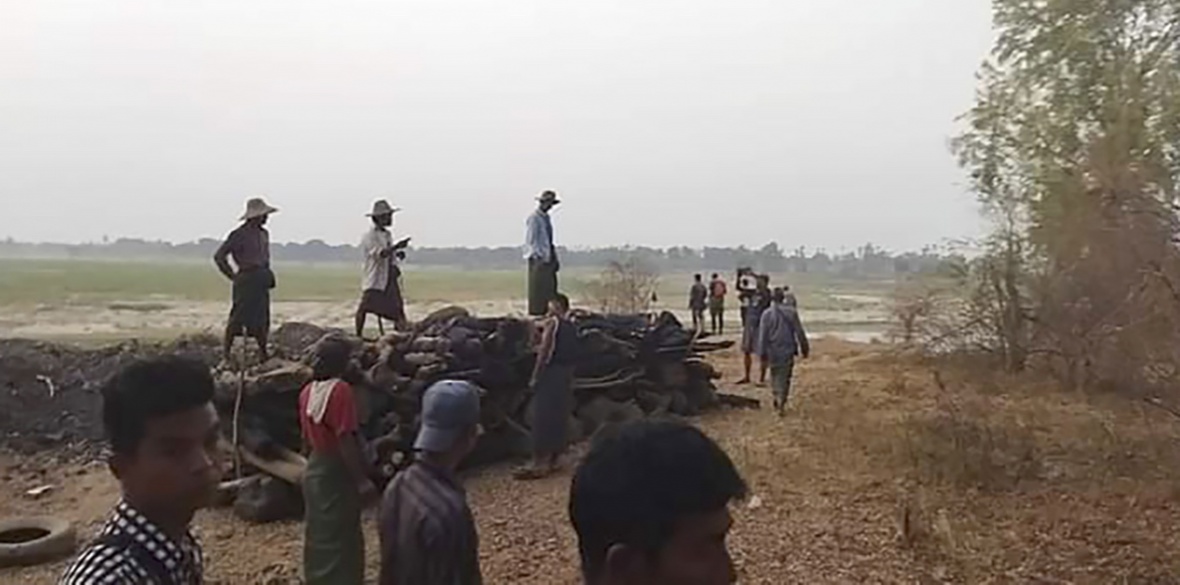This is the last article you can read this month
You can read more article this month
You can read more articles this month
Sorry your limit is up for this month
Reset on:
Please help support the Morning Star by subscribing here
A GROUP of human rights researchers launched a website on Wednesday to help get justice for victims of state violence in Myanmar, where one of the world's most brutal armed struggles is taking place.
Thousands of people have been killed by the security forces seeking to quash pro-democracy resistance since the army seized power in February 2021 from the elected government of Aung San Suu Kyi.
According to the United Nations, more than 1.8 million have been displaced by military attacks, which critics charge have involved gross violations of human rights.
But it's been hard to establish who is responsible for human rights violations, especially generals and other high-ranking officers behind the scenes.
The new website, myanmar.securityforcemonitor.org, is an interactive online version of a report, Under Whose Command? –Human Rights Abuses Under Myanmar’s Military Rule. It was compiled by Security Force Monitor, a project of the Columbia Law School Human Rights Institute, to connect alleged crimes with their perpetrators.
The project’s team constructed a timeline of senior commanders and their postings, which can be correlated with documented instances of alleged atrocities that occurred under their commands.
Study director Tony Wilson said: “This is one of the pieces of the jigsaw that has up until now been missing in terms of accountability.”
Mr Wilson said the Myanmar data shows that 51 out of 79 senior army commanders “had alleged disappearances, killings, rape or instances of torture committed by units under their command” between April 2011 and the end of March this year.
He said the study also shows the officer with the most links to serious human rights violations is General Mya Htun Oo, who became defence minister and a member of the ruling military council when the army seized power in 2021.
He became deputy prime minister in 2023.
Evidence-gathering groups first formed in Myanmar in 2021, including Myanmar Witness, which seeks to “collect, analyse, verify and store evidence related to human rights incidents … in a way that is compatible with future human rights prosecutions.”
“Our work can complement and feed into the work of documenting abuses,” said Mr Wilson.
“Because we always aim to map the entire police or military, our research can help make connections between what human rights groups have documented and the wider chain of command.”









